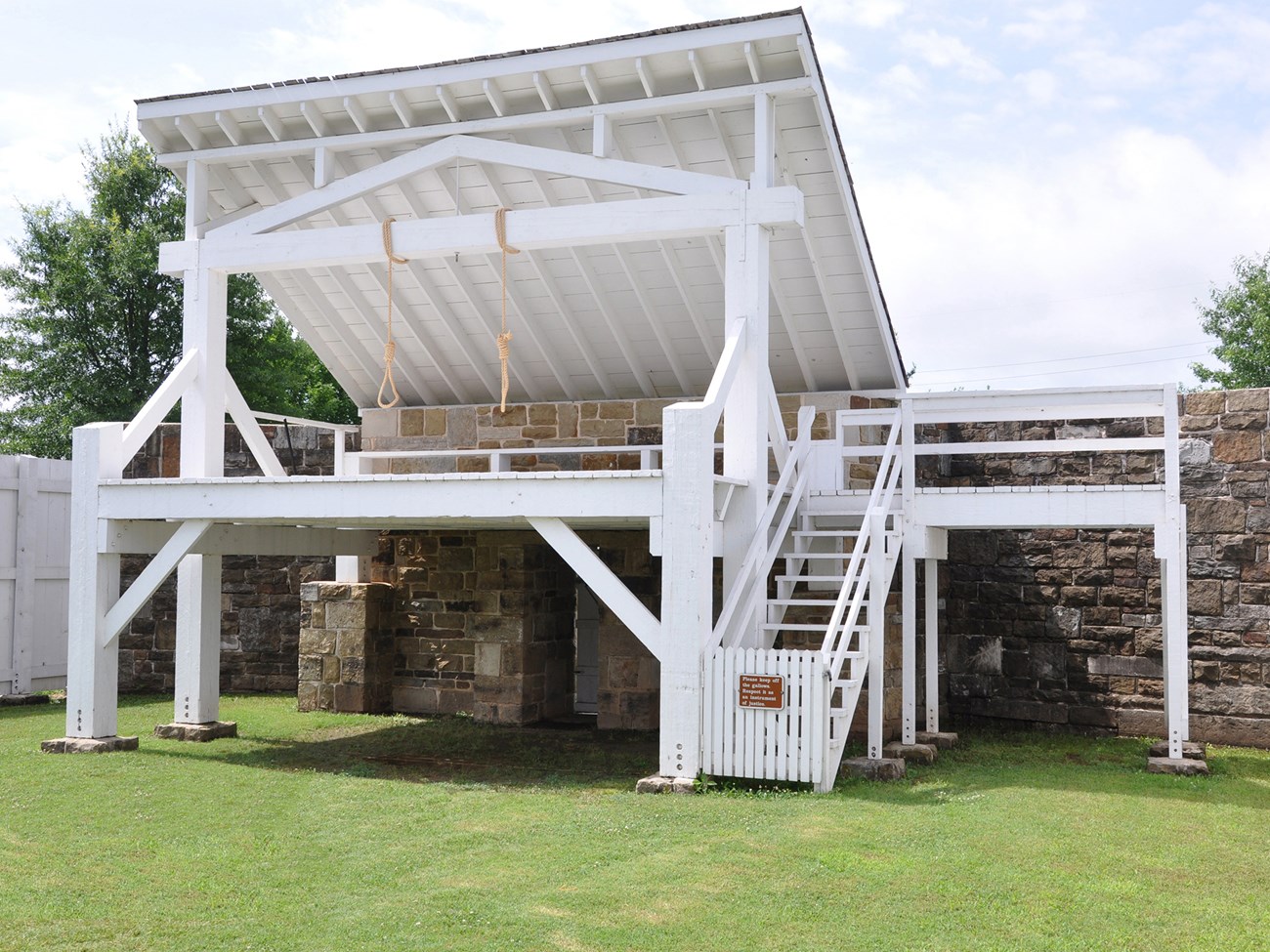Last updated: January 12, 2025
Article
Stories Behind the Executions

NPS Photo
For twenty-three years, the federal court carried out executions on the gallows at Fort Smith. In thirty-nine separate executions, a total of eighty-six men were put to death after being found guilty of rape or murder. More men were put to death by the U.S. Government in Fort Smith than in any other place in American history. These executions, as well as the crimes and trials that lead to them, form a unique and fascinating part of the story of Fort Smith.
Summary of Crimes Committed
On October 10, 1873, two men were executed on the gallows at Fort Smith. Tunagee (alias Tuni) and Young Wolf were Cherokee men who had killed two trappers on the Grand River in the Cherokee Nation. The motive for the crime was apparently robbery, but the culprits only secured a few steel traps and other items of little value. Both men were sentenced by Judge William Story and were among the seven men hanged for murder before the arrival of Judge Isaac C. Parker.
While federal executions began in Fort Smith in 1873, the one that occurred on September 3, 1875, was the first under Judge Isaac C. Parker.
Of the six men hanged in Fort Smith on that day, three committed murder to rob their victims. Daniel Evans and William Whittington killed their traveling companions for the cash and goods they carried, while Samuel Fooy murdered a school teacher for $250. Edmund Campbell murdered Lawson Ross and his wife in revenge for an insult. The motives of the final two men remain unknown. Smoker Mankiller shot and killed his neighbor, and James Moore, a hardened killer, made Officer William Spivey his eighth victim.
Austin was found guilty of shooting and killing Thomas Elliott in a dispute over whiskey. Billy and Willis robbed W.P. Williams in the Kiamichi Mountains and then killed him. A jury convicted Jones of the murder of Henry Wilson for the $12.00 he carried. Burris and Goin killed Houston Joyce as he traveled through Indian Territory. Originally, Judge Isaac Parker had sentenced nine people to be executed on this date, but three received reprieves or commutations.
